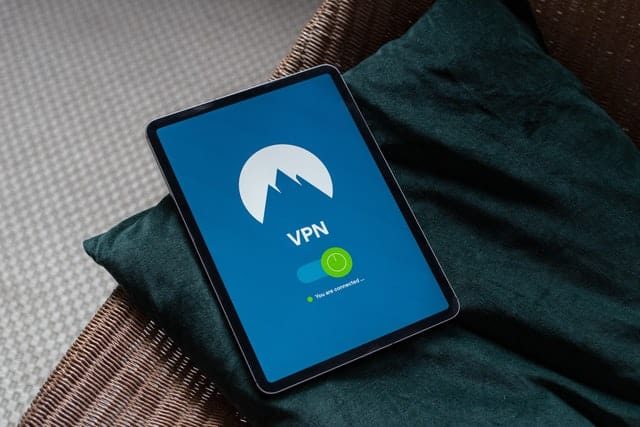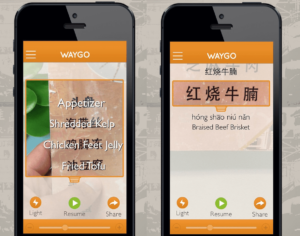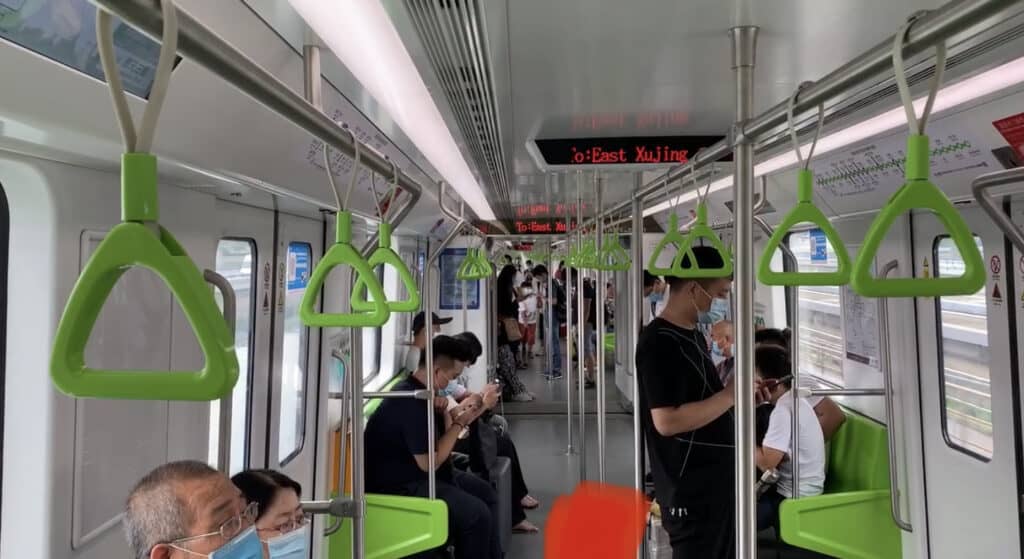The language barrier in China isn’t as strong as it used to be, but you will still face language related challenges here as a non-Mandarin Chinese speaker.
If you’re used to the tourist trails of South-East Asia or Europe, you’ll quickly realise that English isn’t as widely spoken in China. The more you remove yourself from the centre of larger cities and popular tourist trails in China, the harder it will be to find an English speaker.
However, don’t let this affect your travel decisions.
Being unable to speak Mandarin in China really isn’t that much of a problem, especially as a tourist. This might surprise some prospective visitors, but it’s the truth. If you’re really concerned about the language barrier in China, there are a number of steps you can take to avoid potential language mishaps.
Are the Chinese really that bad at English?

No.
There are a few things people often forget or don’t know about the Chinese when it comes to their ability to speak English.
- Learning English in Chinese schools is compulsory, and has been since the late nineties. I remember French was compulsory at my high school, but I can’t remember a word of it. Luckily, Chinese students aren’t as lazy as I was, and much of the younger Chinese generation can speak basic English at the very least.
- The Chinese are shy. Even if a Chinese person can speak competent English, they might often refrain due to potential embarrassment when making mistakes. This is very common in China and something to keep in mind.
- People who work in the tourism industry will speak English. This is the same anywhere in the world, and China is no different. If you’re in a major tourist area that has a lot of international visitors, an English speaker will not be far away.
Although the standard of English is constantly improving in China, there are times when you might find yourself struggling to communicate.
Here are 11 tips that will help you out!
Before you Go
Get your SIM card and internet sorted

One thing I always dreaded when I first arrived in China was being stuck in the middle of nowhere with no internet connection.
This happened to me twice, and neither occasion was very pleasant.
A lot of translation and map apps need the internet to function, and trying to navigate a country like China is much easier when you have mobile data.
As a foreign traveller to China, you’ve got a few options for getting internet on your phone:
- Contact your current service provider to see what roaming deals they’ve got. This is usually the most expensive option but you might be very surprised at what’s on offer.
- Getting a good travel SIM deal from 3gsolutions before you leave would be my preferred choice of action. They aren’t the cheapest option, but they provide excellent service and loads of different deals.
- Getting a SIM card on arrival at a Chinese airport is another common choice for travellers, but I don’t think I’ve ever bought a pay-as-you-go SIM card in China that hasn’t run out of data long before it was supposed to.
Download a VPN

You’ve probably already heard about The Great Firewall of China, and it’s much easier to prepare for the internet censorship in advance. Chinese search engines offer up very few results in English, and if you want to use Google you’ll need to turn your VPN (Virtual Private Network) on.
Virtual Private Networks (VPNs) simply mask your IP address and magically make your phone or laptop think you are somewhere else, giving you free access to the likes of Google, Facebook, and every other blocked site in China (and there are a lot of them).
There are many excellent VPN providers, but I recommend NordVPN because it has never let me down in over 5 years of using it.
Nord VPN also offers a 30-day free trial, meaning you can potentially use it for your whole trip to China without paying a penny.
Download a translation app
- Google Translate – the English/Chinese text translation file can be downloaded and used offline before beginning your trip, and therefore saving your data. For the voice translation function, you’ll need to be connected to the internet via a VPN (Google is blocked in China).
- Microsoft Translator – Another great translation app and has everything you’ll need i.e. text and voice translation functions in Mandarin and Cantonese. There is an offline version but the file is pretty big (around 90 megabytes).
- Baidu Translate – Although the interface is in Chinese, it’s easy to navigate and works very well in China. You can use Baidu Translate without a VPN.
Download Waygo

Waygo is a text scanning translation app and will make eating at authentic Chinese restaurants a lot easier.
A lot of Chinese restaurants won’t have English menus, English-speaking staff, or pictures of the food. With Waygo, you simply scan the different items on the menu to get a translation of the dish. Some of the translations aren’t perfect, but most of the time they’re pretty spot on.
You can get 10 free translations a day with Waygo basic, but for a one-off payment of only $5.99, you can get unlimited translations forevermore.
How to get around in China

Consider an international hotel or a hostel
There are plenty of international hotels in a lot of Chinese cities, and hostels are popular along all of the frequented backpacker routes. These establishments are pretty much guaranteed to have English-speaking staff.
Try to remember that in China, foreigners aren’t allowed to stay in hotels rated 3-stars or less.
In many smaller towns and cities, there will be a lot of Chinese hotels that don’t have the required licence to host foreigners. Try not to worry too much about this because the main booking sites like Trip, Booking.com and Agoda will only offer accommodation to foreigners they’re allowed to stay in.
Get a business card for your accommodation
Pretty much every hotel or hostel you stay in will have a business card at the front desk with the Chinese address on it, and possibly a little map. Grab one of these as soon as possible and keep it close to you at all times.
Get EVERY address in Chinese
If you find a taxi driver in China that reads and speaks English, I’ll eat my hat.
When you find the address for where you need to go in Chinese, screenshot it on your phone in case you forget where you found it.
If you’re struggling to find the Chinese address of a place, ask hotel staff to help you.
Use public transport

Public transport in Chinese cities is very good, albeit quite busy at rush hour. The metro systems in major cities are very easy to navigate in English.
You can easily download metro maps for individual Chinese cities on your phone, and every station will have plenty of maps for you to look at.
The bus systems are slightly more complex, but if you’ve got Apple Maps then you’re at an advantage.
Apple Maps lets you see inner-city bus routes in China. Simply type in a destination in English, and the app will tell you the closest bus stop to go to and which number to get on.
Remember that if you’re taking buses in any city, you’ll need a few 1RMB notes handy. Most journeys are only 1 or 2RMB, and the driver will rarely have any change.
Download Baidu Maps
Baidu Maps is the go-to Chinese map app, and although you’ll need to enter Chinese characters to make use of it, it’s much easier to use than you’d think.
If you find a Chinese address online, simply copy and paste it into the search bar and hit enter.
Baidu Maps is the most accurate and up-to-date map in China.
Other non-Chinese Speaking Travel Hacks
Consider tour groups
Some independent travellers turn their nose up at group tours but in a place like China, a good tour guide can really bring your trip to life.
The choices of trips and packages for China are absolutely stupendous, so it will take a good amount of research to find the right one for you.
My personal preference would be to wait until I’ve arrived at a destination in China to select a tour group. There will be so many more options available to you when you’re in the area you wish to explore, and the prices are often much cheaper than what can be found on the internet.
You’re much better off talking to your accommodation owners and local tour guides to get the best routes and rates.
If you’re looking for inspiration or ideas on what to see in China, check out China Highlights and Travel China Guide.
Take a crash course in Chinese
Learning Chinese isn’t as hard as you think, and you can get a lot from a basic course before you set off on your trip.
HelloChinese, Duolingo, and ChineseSkill – If you want an introduction to Chinese vocabulary, characters, and grammar patterns for free, one of the above apps is more than enough. All of them are quite similar in set-up and structure. Each mini-lesson will bring you up to speed with a new grammar pattern and a few bits of vocab.
If you’d like more information about learning Mandarin Chinese, check out this ultimate list of resources.
Conclusion
Travelling in China without speaking Chinese is very doable and the tips mentioned in this post should help any prospective visitor to China.
Don’t be afraid to approach strangers in China to ask for help in English – the Chinese may seem shy and stand-offish initially, but their level of English will often surprise you.
Further Reading
- 100+ MANDARIN LEARNING RESOURCES: THE FASTEST WAY TO FLUENCY
- LEARNING CHINESE: 15+ LISTENING TOOLS PERFECT FOR BEGINNERS
- THE ULTIMATE GUIDE TO LEARNING CHINESE IN CHINA
- THE ULTIMATE GUIDE TO TEACHING ENGLISH IN CHINA FOR NEWBIES
- THE 24 BEST MANDARIN STUDY RESOURCES FOR BEGINNERS
- 14 REASONS WHY YOU SHOULD LEARN MANDARIN CHINESE
- IS IT EASY TO LEARN MANDARIN CHINESE?
- THE 21 BEST APPS TO LEARN CHINESE
- STUDYING MANDARIN AT A UNIVERSITY IN CHINA: WHAT YOU NEED TO KNOW
